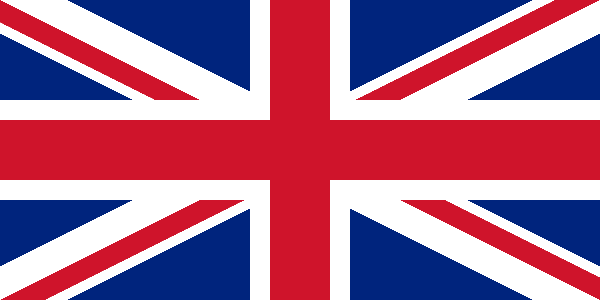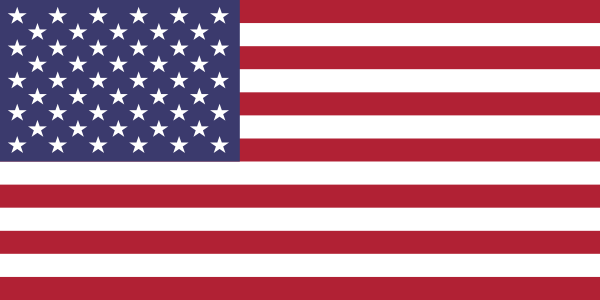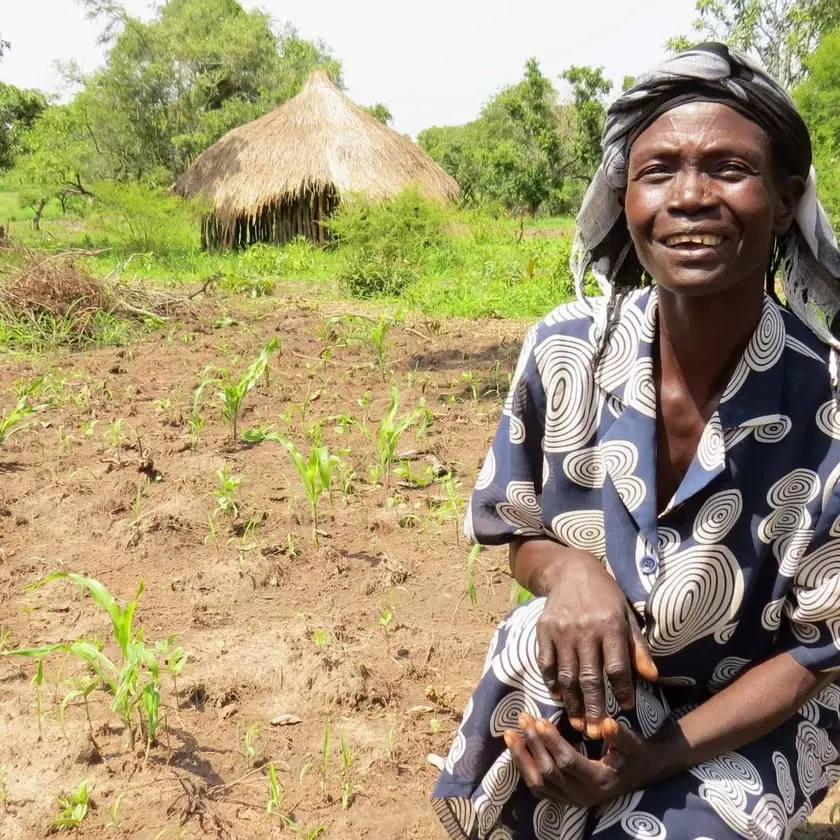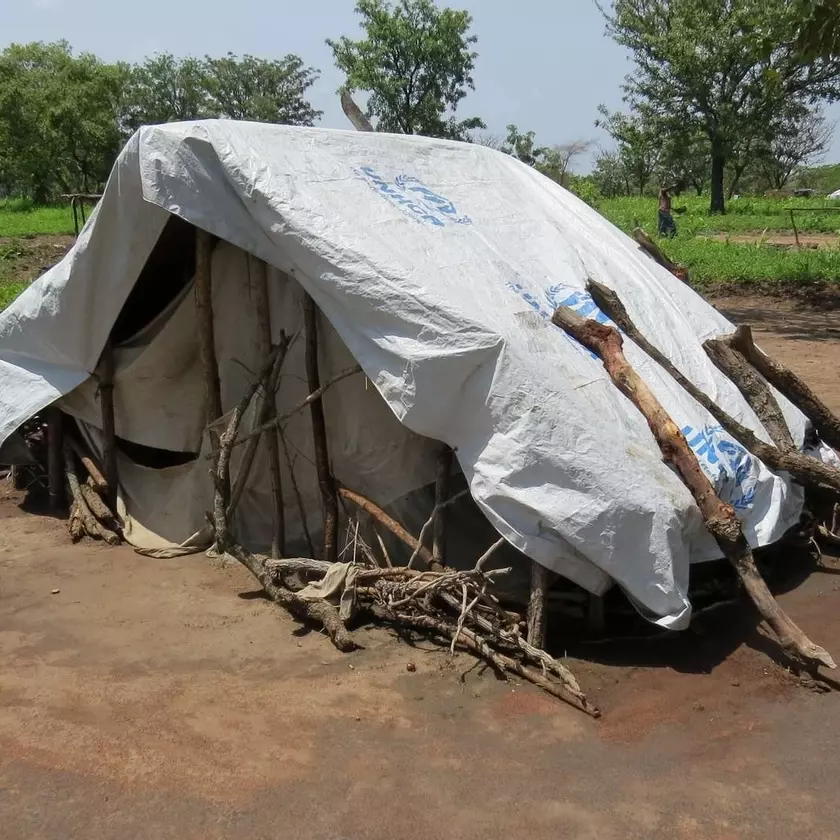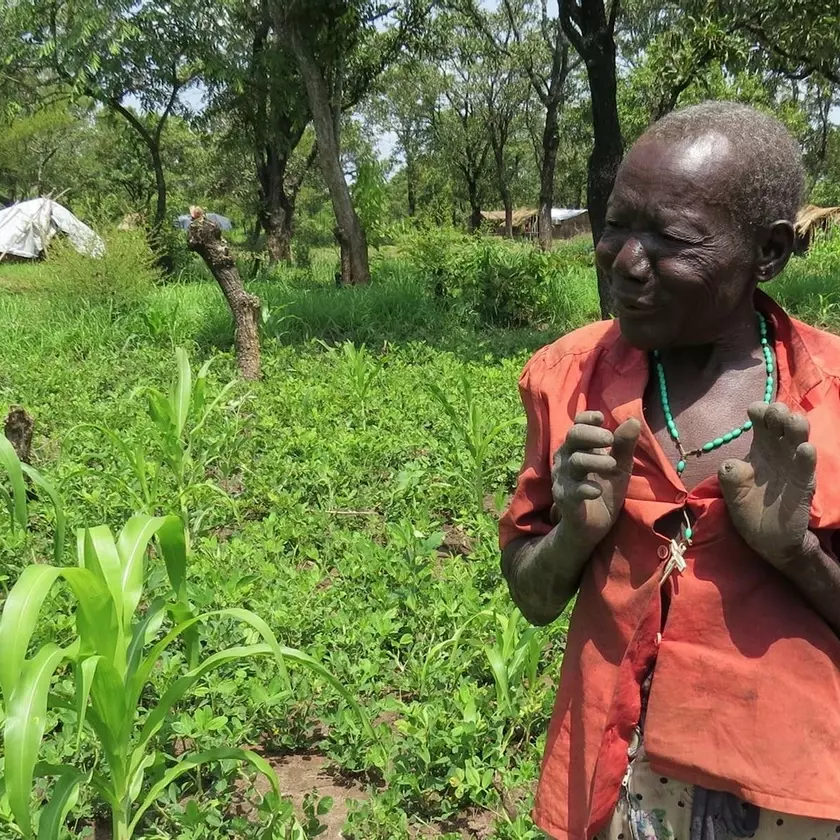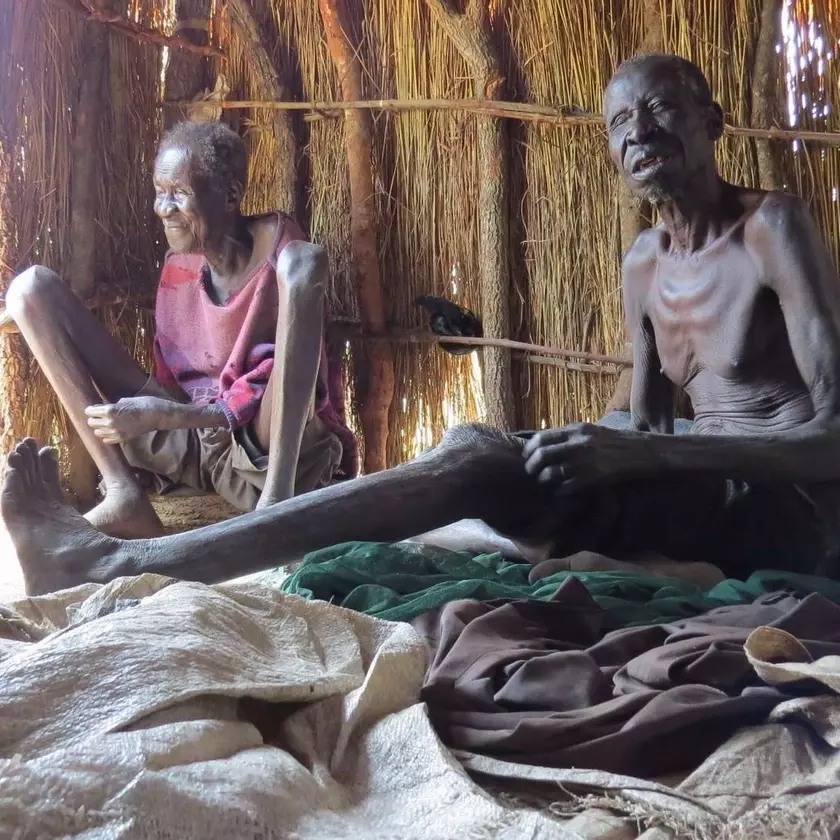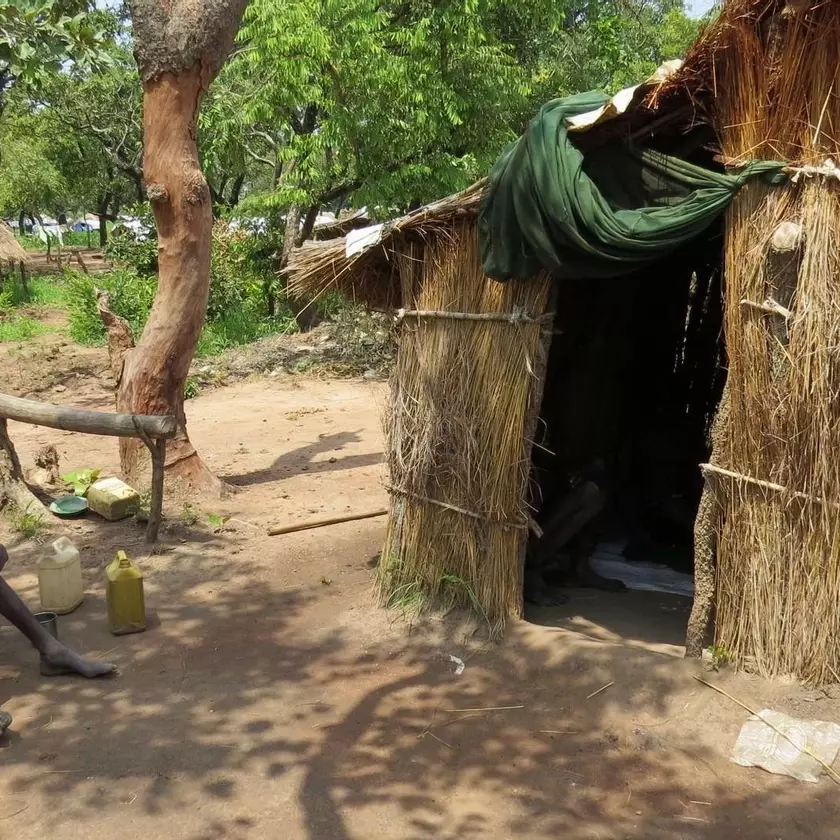The Dying Shed
One of my heroes is an 1800's Belgium Priest called Father Damien, who became a missionary in Hawaii during a terrible outbreak of leprosy. Tragically, the government and church decided all lepers should be sent to an isolated island called Molokai, a barren land with no form of care in any shape. Challenged by this injustice, Father Damien pleaded persistently to those in authority to allow him to go and minister to those on Molokai. Finally he wore the authorities down and was allowed to go, knowing he himself would never be allowed off the island. Upon arrival Father Damien was shocked by the desperate conditions, an island described as 'The dying shed.'
I have reflected many times on this story, not least the harrowing conditions he must have faced upon arrival. Yesterday, I believe I faced the closest I may come to a modern day 'dying shed', conditions similar to my post in March: The Devil Came Down
Yesterday I had the privilege to enter South Sudan, to an opposition held area which holds 3 IDP camps. I thought my lasting memories of this trip would inevitably be security focused and the presence of armed opposition forces and check points along the way was at times surreal and to begin with slightly nervy. However, in many ways I felt more at peace than I had in Juba last year and we were warmly welcomed. HHA and BMS World Mission are working through the Baptists here to deliver emergency aid to some of the most vulnerable and it was my job to go and review what we've achieved thus far.
It would be impossible for me to share every story, but I found myself walking at times through a harrowing, neglected land; often if I'm honest ashamed of my Western identity knowing how neglectful the West has been to this crisis. After a few home visits, I was taken to see a widow with leprosy who'd also lost many of her children. Despite her disgraceful living conditions (pictured above), I was humbled by her courageous and almost jovial welcome to me. Our visit seemed to provide some joy and I was encouraged to see her attending to her crops. She had recently received some seeds and tools from HHA and BMS.
Just several minutes walk from her house and I was introduced to another temporary shelter. I say temporary, in reality these precious people have lived here for over 5 months now and the end is yet in sight. Here I found two blind men, both malnourished living in appalling conditions and only surviving thanks to the love of one other man who'd taken them in, himself just as thin The injustice haunted me, with questions over the lack of equality tormenting me. How can two old blind men be left to live like this in 2017? And yet, there case was not an isolated incidence of injustice. I don't think I've ever seen such a high density of persons with disabilities in one place.
Then, as our day started to draw to an end, I was introduced to one final lady. I was startled by her beauty and youthfulness. This may seem a strange comment, but having spent most of my time amongst the old and visibly disabled, I couldn't obviously identify why she fell within our 'vulnerable' category, despite sensing a deep pain and loneliness in her eyes. However, rarely have I been so moved on a field visit. 'I was kidnapped by the Lords Resistance Army (LRA) when I was about 6' she shared. For about 7 years she remained under their entrapment, giving birth to her first son from one of her captives. Her mother had died shortly before she was kidnapped and when she was finally released she found out her brother had committed suicide, finding the pain of her kidnap to painful.
Her father soon died following her return, before she married and had her second son. Then, tragically her husband also died, leaving her literally with no one. Her lost years under captivity of the LRA had distanced her from those who perhaps may have been a later support.
Subsequently, I don't think I've ever met a human so emotionally drained, literally hanging on to the slightest bit of hope - her ability to survive hanging by a thread. 'Sometimes I travel away from home for 3 days trying to find casual labor' she explained. 'When I do, I have to leave my children, often they have no food when I'm gone.' Ignorantly I ask, 'How much do you earn a month from these work trips?' 'About 10,000 shillings she replies' (less than $4US). As is so commonly the case here, the weight of her children not being able to sit their school exams also weighs heavily on her shoulders. She weeps before us, though courageously trying to hold a world of total torment beneath her eyes. I'm meant to be filming her story, to document the needs, but I can't bring myself to do it. I don't want to risk what little dignity she has remaining.
A returning sense of shame and anger start to surface within me, embarrassed when asked to share a few words of hope, feeling totally inadequate to offer what I couldn't help but feel would be shallow words. James says in the Bible that if our faith doesn't manifest in works, it's all but dead. I always remember a quote from Rees Howes, a famous Welsh intercessor, who said we shouldn't pray for things we can be the answer to. Don't get me wrong, even the Commissioner of this area during a brief meeting challenged me and those I was with. 'I call upon the church to help, otherwise there is no hope for these people.' An urgent increase in prayer is desperately needed as part of that hope. But, that needs to be backed up in equal measure by action.
HHA's vision statement is to 'Provide life-saving health and disability care to the world's most vulnerable.' There are perhaps few people in the world right now more vulnerable and more in need of life-saving intervention. HHA will be including the lady above on our next food aid and agriculture distribution, funding her kids through school this next year and looking to start a solar power business for her (charging mobile phones) to help bring hope and lift her from poverty. But, there are many more families in need.
There were glimpses of hope during our visit which encourage me to continue. Seeing Suzette (the lady with leprosy) tending her field we'd helped enable and joking with me. Being shown the emerging crops of a proud deaf women through our support (pictured below). Seeing the bag of emergency food rations in the house of the two blind men, perhaps the only thing they're surviving from at the moment. There is always hope.
And so, alongside your wonderful and deeply appreciated prayers for our time here; following yesterday, I'd also plea on behalf of the people I've met for your generous support to enable us to ramp up our efforts. They asked that I share their stories. I have done so, not nearly as well as I'd like. Now I hope that our support may start to change these stories in testimonies of hope and victory. Thank you.
If you'd like to make a donation to this work, you can do so here: DONATE TODAY.
